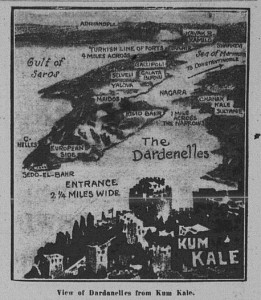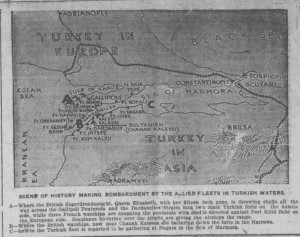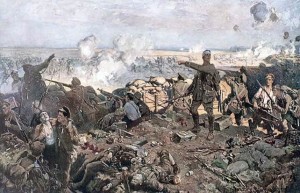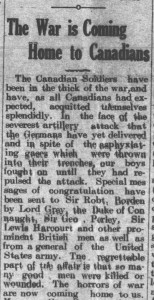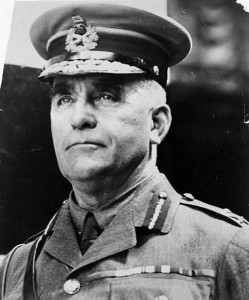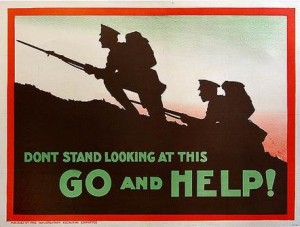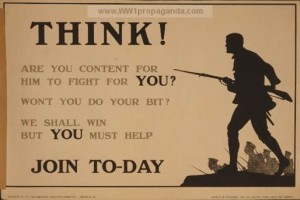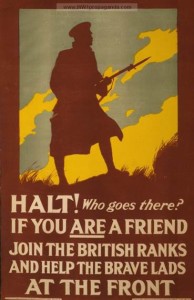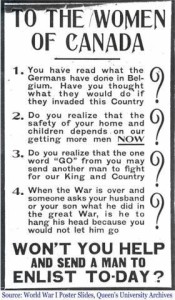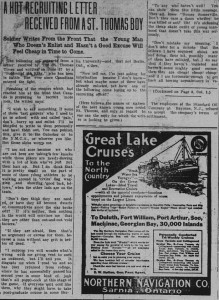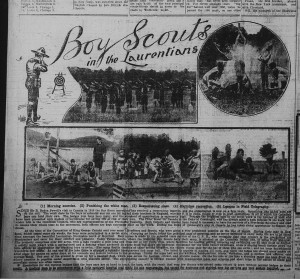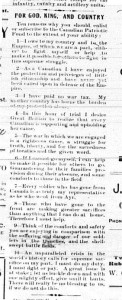Throughout March and April, the Canadian Press Service regularly reported on the progress of the Allied fleet through the Dardanelles, the strait which leads from the Mediterranean Sea to Turkey’s capital, Constantinople.
The fleet of British warships systematically bombarded the Turkish forts in the strait. The forts were unable to slow their advance because of the inferior range of their guns. The only thing that slowed the fleet’s advancement was mines in the water. Meanwhile, the Russian fleet was applying pressure in the Black Sea to the north of Constantinople.
The Entente optimistically assumed they would “hammer” their way through the Dardanelles by Easter (April 4). Although they did not meet this objective, by April 21, 20 000 British and French troops landed in Turkey, and by the end of the month the Entente were reportedly capturing entire battalions of Ottoman forces. Their successes bolstered the confidence of the Entente.
(“Pounding at the Forts,” Ayr News, 11 March 1915.; “Turks in Terror,” Berlin Daily Telegraph, 6 March 1915.; “Allies Will Hammer Way Through the Dardanelles by Easter,” Berlin Daily Telegraph, 13 March 1915.; “British and French Troops in Turkey,” Berlin Daily Telegraph, 21 April 1915. “Entire Turkish Battalion Captured by Allies,” Berlin Daily Telegraph, 29 April 1915.
Visual: “Turks Batteries Reduced.” Ayr News, 18 March 1915.; “Scene of History Making Bombardment by the Allied Fleets in Turkish Waters,” Waterloo Chronicle, 18 March 1915.)